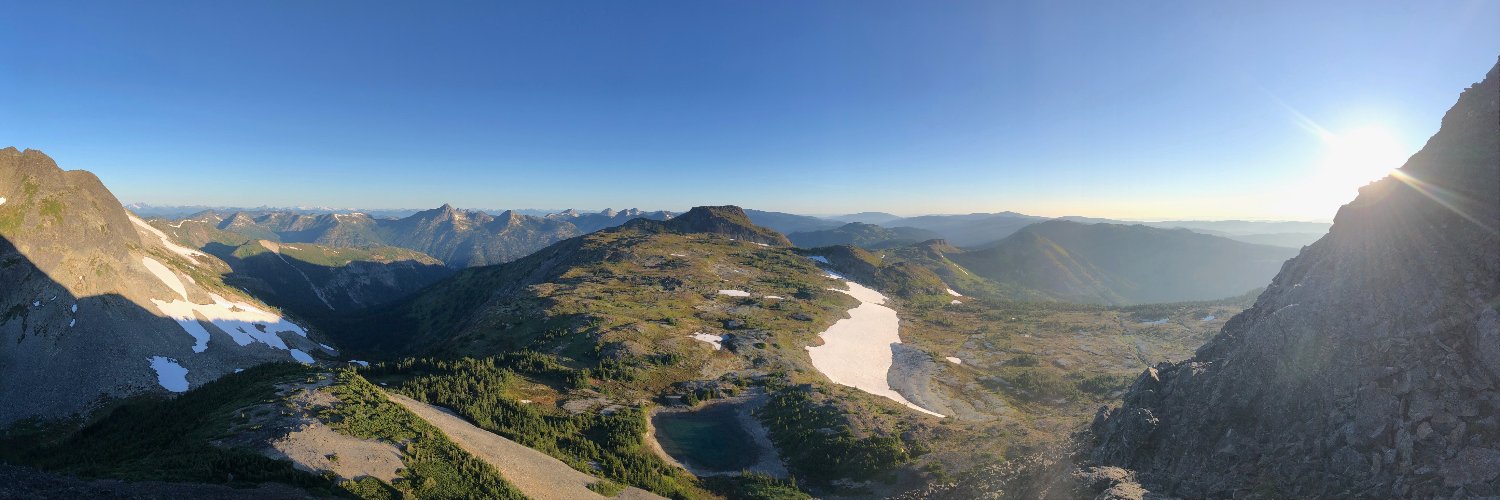
Michael Skinnider
@skinniderlab
assistant professor @Princeton interested in biological and chemical data
Very happy to see our work on mapping the 4D molecular pathobiology of spinal cord injury now in print:
Nature research paper: Single-cell and spatial atlases of spinal cord injury in the Tabulae Paralytica go.nature.com/3VOLvSQ
Very happy to share our latest work on harmonizing raw mass spectrometry data from >21,000 proteomic experiments to enable meta-analyses of protein interactions and phosphorylation at the largest scale yet: nature.com/articles/s4146… @lenjf

For developing an #AI-based approach to identify new designer drugs wreaking havoc in an ever-greater number of global communities, Michael A. Skinnider is the winner of the 2023 NOMIS & Science Young Explorer Award. 🎉 Read more: scim.ag/4LE
Discover our latest study, published in @ScienceMagazine , which reveals a groundbreaking approach to regenerating axons through complete spinal cord injury, reversing paralysis. Read the full article here: science.org/doi/full/10.11…
Well, it took a little longer than expected, but we're happy to share our lab's first paper. Thanks to the reviewers and editors at JACS for sticking with us through a surprisingly weird story 😅. Science never changes. pubs.acs.org/doi/10.1021/ja…
Thrilled to share our approach for language model-guided discovery of unknown mammalian metabolites: DeepMet. We’ve now used this approach to discover ~50 new human and mouse metabolites! biorxiv.org/content/10.110…
Ludwig @Princeton seeks applications for an assistant, associate or full professor to contribute to a major new initiative at the interface of cancer, immunity and metabolism. bit.ly/4dz933Y
Excited to share our approach to the biological interpretation of comparative spatial transcriptomics experiments - Vespucci @j_squair @gcourtine biorxiv.org/content/10.110…
new lab preprint - using proteomics and protein co-variation to infer protein association networks across 11 human tissues to study what determines tissue differences and to prioritize disease genes in GWAS linked genes through tissue specific networks biorxiv.org/content/10.110…
Very happy to share this work testing a widespread assumption in chemical AI and showing that invalid SMILES are a feature, not a bug: nature.com/articles/s4225…

Work from the Long Lab @longlabstanford and our lab working with @DavidFinlayTCD on links between metformin, and eating (especially solid food) on Lac-Phe levels and appetite suppression @NatMetabolism
Back-to-back papers in @NatMetabolism today: a surprising connection between the appetite-suppressing metabolite Lac-Phe and metformin-associated weight loss. From @lynchielydia and @skxiao_nju @Stanford_ChEMH nature.com/articles/s4225… nature.com/articles/s4225…
We are advertising two postdoc positions at Princeton: one in computational mass spectrometry broadly defined, the second more specifically in AI/ML for illicit drug identification. Please feel free to reach out with any questions: puwebp.princeton.edu/AcadHire/apply… puwebp.princeton.edu/AcadHire/apply…
Spectrum of the past nature.com/articles/s4157… An old News & Views article by @skinniderlab from @Princeton on a neural network called MSnet created by Curry and Rumelhart and published in Tetrahedron Comput. Methodol. 34 year ago.
I am so excited that the paper led by @bittremieux on the creation of an open resource with nearest neighbor molecular network ms/ms library is out. rdcu.be/dt7ci when one does not get a match against existing libraries-this may help.
Using transfer learning to develop a NPS-specific MS/MS prediction model. If you're interested, check out the OA publication and head to nps-ms.ca to try it for yourself. pubs.acs.org/doi/10.1021/ac…
Excited to share our new work on detecting ‘designer drugs’ with (computational) mass spectrometry. We developed a platform to help toxicological labs make data-driven decisions about what clinical tests to develop next: pubs.acs.org/doi/10.1021/ac…

New process for screening old urine samples reveals previously undetected ‘designer drugs.' The approach can potentially save lives and guide timely clinical responses to drug-related emergencies. Read more: bit.ly/3QGZB4S @UBCmedicine @BCCSU
Here are the winners of this year’s #Science Awards: Congrats to @HoebartnerLab for being awarded with the Hansen Family Award and @gaofir, Dr. Erin Stache, @skinniderlab and Dr. Vivi Maketa for winning the Early Excellence in Science Award. bayer-foundation.com/and-bayer-foun…
Assessing the limits of zero-shot foundation models in single-cell biology biorxiv.org/cgi/content/sh… #bioRxiv
Very happy to have made a small contribution to this great review on AI/ML methods for natural products discovery @NatRevDrugDisc, led by @marnixmedema, @serina_robinson, Roger Linington, Anna Hirsch, and @GJPvWesten nature.com/articles/s4157…
